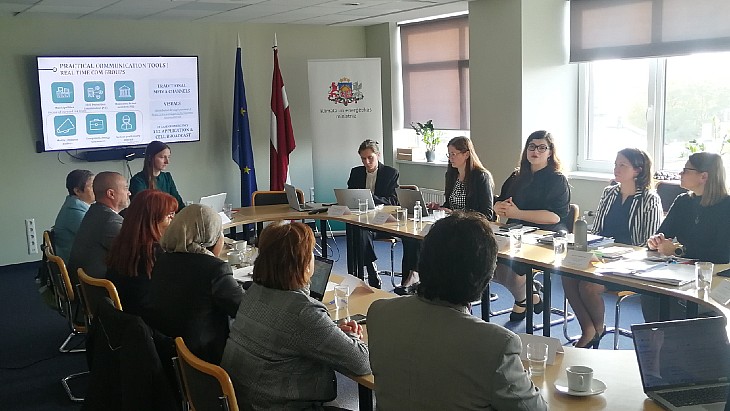The 10-day, six-person, Emergency Preparedness Review Service mission was requested by the Latvian government and hosted by the Radiation Safety Centre of the State Environmental Service.
Genaro Rodrigo Salinas Mariaca, Senior Specialist on Emergency Preparedness and Response at the Federal Authority for Nuclear Regulation in the United Arab Emirates, led the team which also included experts from Bulgaria, Indonesia, Portugal, Finland and the IAEA.
He said: "The outcomes of this mission highlight both well-established practices and valuable opportunities for further strengthening integration, coordination and resilience."
Examples of strengths identified included: the continuous proactive approach and strong determination of the radiation safety centre in leading preparedness and response initiatives for nuclear and radiological emergencies; the government's efforts to establish reliable communication channels to disseminate information and instructions to potentially affected populations; and on-going initiatives to build public trust through effective crisis communication as a way to strengthen the overall national emergency response framework.
Suggestions made included: to align national regulations and emergency frameworks with relevant international safety standards; to implement a national coordinating mechanism in all emergency response organisations; to integrate the Crisis Management Centre into the national framework; to conduct hazard assessments in line with relevant international safety standards; define guidance values for emergency workers and helpers, including provisions to register and integrate non-designated emergency workers and helpers into emergency response arrangements; and establish arrangements for environmental and food monitoring during emergencies.
It also stressed the importance of organisations having sufficient qualified personnel to carry out their emergency responsibilities.
Kaspars Melnis, Latvia's Minister of Climate and Energy, said: "This review has enabled us to benchmark our systems against international best practices, identify areas of strength and pinpoint opportunities for improvement. We are committed to translating the mission’s recommendations into concrete measures to further enhance our preparedness and response capabilities, ensure public confidence, and remain aligned with international safety standards. Latvia values its partnership with the IAEA and looks forward to deepening cooperation in the years ahead."
The Radiation Safety Centre of the State Environmental Service said that before the mission it had already prepared a new draft Cabinet of Ministers regulation to include the requirements of international safety standards, replacing those from 2003. "Based on the recommendations of the experts, the draft regulation will be improved" it said, and would, in cooperation with other institutions, develop an action plan for the implementation of the recommendations made as a result of the mission.
Latvia does not currently have any nuclear power reactors; its research reactor closed in 1998 and is in the early stages of decommissioning. It uses radiation sources in medical, scientific and industrial applications and has a disposal and storage site for low and intermediate level radioactives waste 30 kilometres from the country’s capital, Riga.







_97013.jpg)
_51413.jpg)






